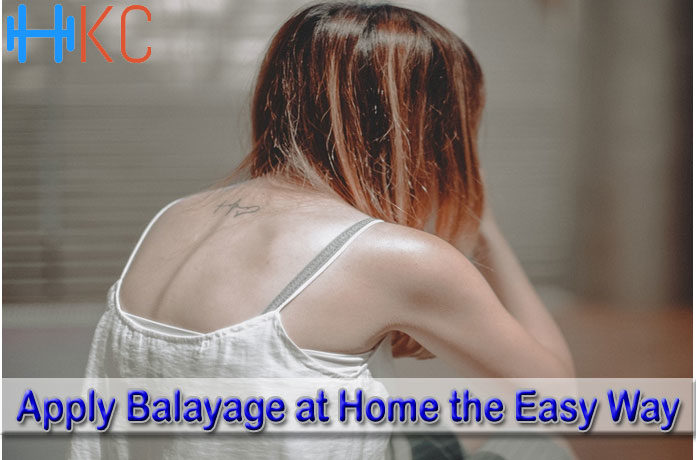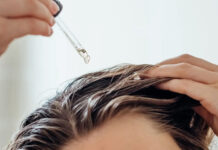This virtual world of reality -the internet- is a treasure to us making it a breeze to learn new things every day. From fixing worn out belongings to making your first good cake at home; it takes very little efforts while being at home without having to apply any rocket science. If you’re not really into buying readymade balayage hair extensions online and looking forward to doing-it-yourself at home, we’ve got you backed-up. A lot of efforts have been executed by us to sum-up this step-by-step DIY balayage home guide for you.
While preparing this handy guide, we made our firm motive to have our fellow readers enjoy the very best effects of balayage style who are on a tight budget. But before we move on, let’s understand the core realities of Balayage and why it is preferred the most by hair stylists in comparison to its twin-substitute “Ombre”.
How to make the most out of it:
Balayage, being a hot-trend of the town and yet a free-hand hair coloring method is quite capable of giving the fine lush natural look that leaves a sun-kiss effect on hair – if applied the right way. The long traditional balayage highlights are more impressive and glossy if you’re going on outdoors. However, you need to apply the balayage hair dye in full to your hair following with a full tinfoil wrap-up. The after-effects have a lot to do with the way you care and obviously your hair type and previous treatments (if any). All these factors determine as to what extent your balayage dye would work. In the worst scenario, you’ll experience dull and harsh hair scalp.
Here’s one tip:
Never apply bleach with balayage dye. The damage is very devastating for such a combo!
What makes balayage the best choice when it comes to hair styling is that it is quite convenient to apply at home and the standalone hair damage is pretty tolerable. While applying balayage dye, you take each strand in your fingers and apply it with extreme care. This is the reason that balayage gives natural color transition to each strand with fine details.
The steps highlighted below are easy-to-follow and you don’t need to be a tech-savvy to do it on your own at home. If the results aren’t up to the mark in your first go, don’t feel down; there’s still room for perfection even for Miss. Perfectionist. However, for those of you who haven’t done such activity at home before, we recommend following these steps with extreme care.
Things you’ll need (The Checklist):
For a fine start, you’ll need:
- A brush and bowl;
- A 0% ammonia-sulfate dye that is in contrast to your original hair color, i.e.: lighter dye for dark hair and darker dye for light hair that is more visible on lighter strands;
- Frizz control shampoo & conditioner.
Once you’re up with all these things, proceed with the below steps in chronological order:
Step#1: Read & Follow the Box Instructions Carefully
At first, you’ll need to select the most appropriate hair color for your DIY balayage hair application. We recommend you choose a color shade that’s 3X lighter than your natural hair. Once you pick the right type of hair color, see the box for instructions even if you have used the same brand and color before. Our major concern here is to make sure that the hair color you’ve selected doesn’t mismatch with your scalp and hair type resulting in some sort of allergy or something.
As a common practice, put up your hand gloves and apply Vaseline or petroleum jelly around your head, ears and shoulders so that they don’t get tinted while applying the hair dye.
Step#2: Pull Your Hair Up
For the best part, you can create as many layers you want, however, it solely depends which balayage effect you intend to get. For beginners, we recommend pulling each of your strands one by one and tying them in different knots. Make sure that you leave the thin hair layers (the extras) down and don’t pull them up with your strands.
Tip: Segregate your hair in 4 different sections after rounding up your hair from the middle. Then, pick up your comb and start combing from the mid-point and stretch down to the end of your ear and then your another ear.
Step#3: Twist to the Middle
Start twisting your hair all the way to the middle to the end. Stretch your hair tightly from the starting point of the twist with a fine comb. This will prevent your hair roots from being covered by hair dye. The idea here is to combine the reality of your natural hair color with the goodness of your chosen color shade. Having healthy roots is the key to beautiful hair shade in the long-run!
Step#4: Put Up the Dye with Care
The ends should be dyed first. Run down to your ends and then move on to the middle-length all the way down. Fingertips do a brilliant job here in comparison to a brush, while the latter being more accurate and handy.
Proceed with the application of your hair dye on the remaining portion of your hair. Just make sure that it doesn’t go deep down the roots.
Step#5: Cover the First Part of Your Hair
Now that you’ve dyed the first section of your hair, pull all the strands while making sure they don’t bleed the dye on your roots. We recommend using bobby pins for a fine job!
Step#6: Do the Rest of Your Hair
It doesn’t really matter if you have done the hot bun cross or any other method that you preferred, you’ll still have to work on the rest of your hair. If somehow you don’t get that balanced look with your first DIY balayage, move on. You’re not a professional after all, and that unfinished look would be natural in the first place.
Step#7: Finish the Move and Rinse Your Hair
No one else would understand your hair better and the way you want them to be. Just make sure that you followed all the box instructions carefully without any negligence and don’t let your color stay there for hours. Read the information on the box and follow the application time. Once you’re determined that the color is permanent, rinse your hair thoroughly with middle-warm water and apply a toner with hair treatment (if needed). Don’t use a towel or any hair dryer to blow dry your hair, let them dry on their own.
And Viola! You did it all on your own….













